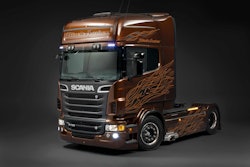Volkswagen shares tumbled Monday morning on the heels of news last week that the U.S. Environmental Protection Agency’s announcement that it was initiating a class-action lawsuit against the German automobile manufacturer. The suit alleges that Jetta sedans sold in in North America were equipped with emissions “defeat code” software: If the car’s Electronic Control Module detected a hook-up to an emissions testing device, it would adjust its emissions control system to conform to existing emissions regulations. Once the system was disconnected, the cars would revert to emissions performance not in compliance with EPA regulations — the car’s default operating mode.
Defeat software is nothing new in trucking. Flash back to 1999 when several truck OEMs were busted by the EPA for the same offense: Coding engine software to detect test devices and boost emissions performance while in test mode.
Ironically, one engine manufacturer — Navistar — was found to be in in complete compliance with the regulations then in place. Indeed, the EPA found that Navistar was actually ahead of the game and already exceeding the threshold set for coming emissions regulation rules. As a result, Navistar began receiving EPA emissions credits as a reward for being a good-faith player and company officials apparently decided their emissions technology path was infallible; two developments that would have unforeseen — and profound – consequences a decade later.
This is not welcome news at all for VW, should these allegations be proven. If that’s the case, the company is looking at a scandal that affected more than 10 million cars, according to the latest reports, and the in-house costs of repairing those vehicles will be tremendous. On top of that, the EPA could slap them with an $18 billion fine.
The long-term repercussions of this story could send shockwaves across the global automotive pond that could eventually lap up on the shores of the heavy-duty truck market.
As I’ve noted before, VW is on record saying that its goal was to surpass Toyota and become the No. 1 automobile manufacturer in the world by 2020. Making a move into the North American truck market was widely seen as a vital step in that process. And the industry buzz for years now has been: Is Volkswagen coming? Will they try to buy a North American Truck OEM? If so, which one?
If the allegations prove to be true, then it’s reasonable to think that any North American trucking dreams VW has will have to be put on hold — perhaps indefinitely. Any scenario for VW coming into the U.S. truck market is wholly dependent on the company’s access to huge cash reserves. Obviously, VW may soon have to spend that money on cleaning up this alleged emissions mess and paying massive EPA fines.









